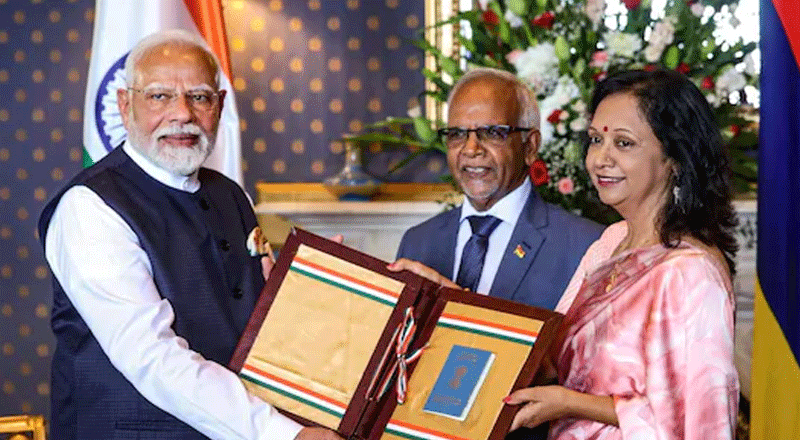In today’s technical age when the Digital India initiative is taking shape and with digital tools being utilized as an effective weapon in the name of national security, only time if the country’s 135 million population are safe and secured in terms of their personal information or is it merely becoming a joke. That’s when you club together ‘Digital India’ and ‘Make in India’ and you see the danger increasing manifold. We all know that our country is ahead in the world of software production, but in hardware production, we are not only way behind but are stuck in the middle of nowhere. India’s traditional rival in this space is China, which has already built a formidable league in this space. That’s the vicious form of China and its manipulation is not hidden from anyone. In such a situation, a very big question arises that how can we and our government be able to safeguard the interests of the people of the country and those standards of national security, so that higher standards of protection can be preserved.
On the other hand, the government at the Center and the states are aiming to get the initiative of Digital India to every corners of the country so that its benefits are met by the general public. Indeed, this thought is very good and even appreciable, but the question comes of how it can be possible, the answer to this does not lie with anyone. Yes it is true that the central government has brought forward the initiative of ‘Make in India’ to support this policy and has also increased its efforts in this direction, but nonetheless the task it has in front is gargantuan. Today, almost all the resources required to enhance the resolution of ‘Digital India’ and ‘Make in India’ in the country are arranged from outside. It is not that under the make-in-India, the productivity of such resources has not been encouraged in the country, and in this direction many companies of the country have come forward; but the issue is something different and serious, which is acting as a deterrent to let it happen.
There is also a serious question that the Chinese companies who have been banned in other countries and Europe have been given an opportunity to work in India, is it not a big mistake?
Chinese companies are adopting another way to reach every corner of the country. Taking advantage of the flexible laws that Indian is adopting, it is laying its hands on many big contracts with the help of many small and fictitious companies here.
Ever since Narendra Modi’s government has been formed in the country, there has been a lot of focus on ‘Digital India’ and it has been shown as a major success of the government. The campaign to connect every panchayat of the country with Optical Fiber was started, which is still going on to connect each village today. Up until now, there is no danger to it; rather it is a commendable endeavour. In this context when we bring Make in India forward, then it is no less a miracle, and every Indian feels proud that our country has gone a long way, but when you try to understand its truth then there is big hidden fact. Indeed, make in India is completely ignored when ‘Digital India’ is being talked about, and all the tools used in digitization are being manufactured in China itself. Now you can imagine where on one hand the issue of data stealing has been a concern all over the world, our government is completely acting irresponsible by using goods manufactured in China in its ‘Digital India’ campaign. From this you can possibly estimate how big a threat it is for the country.
Actually, we will have to be little serious to understand this game. The most important reason for this trick is that all the tools manufactured in China (for example, camera, Wi-Fi, RF link, radio devices, boosters, etc.) and the devices used in computers (mouse, keyboard, CPU, Etc.) are much lesser in cost than the products produced under ‘Make in India’. These indigenous companies are not able to offer big money to their government officials and contractor companies in the form of bribe, whereas Chinese companies adapt themselves to these two circumstances. While the overall question here is not which company’s products are being used, but the issue is that when national security is the most important aspect in terms of digital India, what is our government doing in this? Is the Modi government actually ignoring these things? However, from time to time, Chinese companies are being suspected of stealing data and putting them on the servers of their country, which is collected in a planned manner and used against our country. There is also a serious question that the Chinese companies who have been banned in other countries and Europe have been given an opportunity to work in India, is it not a big mistake?
Have a look at the companies which were given the responsibility of connecting villages from every corner of the country under digital India, in which Bharat Sanchar Nigam Limited (BSNL) is the biggest, but the sad part is that BSNL has also been using own China manufactured goods. It is indeed a breach of trust to the people of the country, while also becoming a serious joke with national security. To get this into perspective, you will have to understand a recent controversy. This controversy is linked to Facebook, in which the social media giant has been launching shocking revelations after one another. After accepting the fact that it shares the personal information of users, the company has now said that it monitors the users’ personal information, and even track their computer keyboard and mouse movements to understand their likes and dislikes. That is, if you have a Facebook login on your computer, then every click of the mouse and every use of the keyboard is reaching Facebook, without the knowledge of the user. With this information, Facebook detects what type of content does a user surf and for how much time.
Chinese companies are adopting another way to reach every corner of the country. Taking advantage of the flexible laws that Indian is adopting, it is laying its hands on many big contracts with the help of many small and fictitious companies here. The advantage of this is happening at many level, first they get their work done; secondly they earn bigger profits; third their accountability is not even questioned; and the fourth they can easily have access to the data of people from India’s remotest villages, which would be beneficial to them for a long time. In such a way, China gets tremendous help in formulating strategies for countering India by following its market trends, the interests of the people, the activities of the government, and the methods of implementation of government schemes. India is a democratic country where the formation and fall of governments depend on elections. In such a situation, the Chinese government gets the basis of its propaganda and interfere in the internal affairs of India, and accordingly, it starts meddling in the election of people’s representatives in the people of the country, so that they can be made to work on a forward-looking government. A recent example was seen in the US elections where the Russians were accused of managing the elections with the help of data and helping Trump win, while all the surveys were in favour of Hillary Clinton winning the presidential elections.
On the other hand, this negligence is seen strengthening its hold at many levels, which has its effect in the field of banking and communication. With increasing cashless arrangements across the country, the graph of cyber crime and data stealing is also seen to rise, which is becoming difficult to solve. This is the reason why in the past three months there was an increase of 490% in electronic banking fraud across the country. Only eight percent of these cases have been solved where money has been recovered. Moreover, due to reports of over five million users’ data being stolen on Facebook, people are slowly seen losing confidence on their favourite social media platforms. According to a report, nearly ten million users are considering to abandon this platform. In the past five days, Facebook shares have fallen to twenty percent. This has also resulted in loss of $16 billion to Facebook.
‘Digital India’ is the campaign that has been designed to bring development in society, governance and economy with the multi-dimensional use of a computer, mobile, software and internet. Internet companies doing business in India have put most of their servers in Europe and America, the shortcomings of which we all have to suffer from time to time. Most recently, hackers hacked the Home Ministry and NSG’s websites, thus posing a serious challenge to the Indian government. In this way, you can get an idea of how safe your data base is. When the whole country, every village and person gets entangled in this data, then what will befall us only time will decide. In this context, an incident can be brought to light where a few months ago, more than 32 lakh bank debit cards had been compromised and even today offender could not be penalized. Foreign companies like Apple, Facebook, Google, Twitter, Microsoft and Amazon are doing big business in the name of Digital India in India.
According to Oxfam’s latest report, 50 major companies have evaded taxes of more than 100 billion crores in developing countries like India and getting them deposited in tax havens like Ireland. This is resulting in inequality and also recession globally. Why is the government and the parliament not being able to fulfil the huge responsibility of bringing big business to the realm of digital law and the tax law?
By Shashikant Dubey





